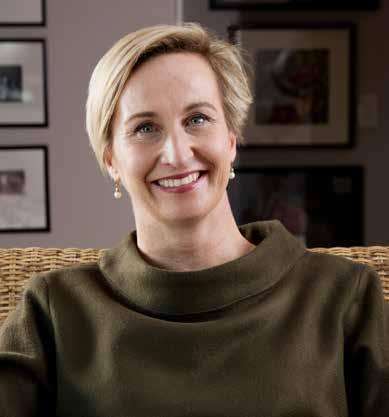
5 minute read
The intersection: Office politics vs. culture
INTERSECTION OF OFFICE POLITICS AND CULTURE
Whether it is vibrant chatter by the water cooler or an exchange with colleagues on a WhatsApp group during a meeting, how we interact in an office environment and with whom can directly impact career growth and job satisfaction. In an HR Indaba Conversation session delving into navigating office politics, one thing was clear – it’s unavoidable but manageable with the right tools.
Advertisement
BY ATLEHANG RAMATHESELE
It’s important to differentiate between office politics and culture and respond appropriately to each. In a nutshell, panellist Niven Postma, managing director of Niven Postma Inc, considers office politics to be a neutral and inevitable phenomenon steeped in relationships, perception, influence and power.
“Those things are inter-dependent and exist together,” she said. “Taking those four elements into the informal and official space gives you a better understanding of something most of us only see as negative.”
Lebitso Mokgatle, HR executive at ENSafrica, said that while office politics will always be rife, it is best to remember that the only thing you can control is your reaction to it.
“Your relationships are actually much stronger than hard work and high performance,” she said.
Lebitso cautioned that it’s only bad office politics that thrives in the dark, and suggested people learn to quietly correct or air grievances in a meeting with those present, instead of gossiping.
Niven shed light on many misconceptions about office politics, including the idea that you can either be a good person or play politics, when they are actually not mutually exclusive, “You can be perfectly ethical and value-driven and political.
It is about how you play politics, to what end you play them and the kind of politics,” she explained.
She also highlighted that some people who avoid politics and believe that it doesn't have any influence on one’s career are being shortsighted: “Some people don’t see relationships, coalitions and getting allies on your side as part of your job. You believe your job is to do the technical stuff and your work will speak for itself. Work does not speak, people speak,” she said, adding that it is important to be mindful of what people are saying – which is all in the political space.
Niven said informal conversations and building relationships are still key. And political intelligence is not a trait, it is a skill. “As with any skill, if you understand the importance and see the dimensions of it that are affecting you in ways you don’t want, you can make it better,” she says.
Politics is a dimension of culture and it is important to determine how to be most effective. Create something that is about you and about others – then go forth and conquer.
Create your space
Niven said that all choices are made by individuals: they should just make them consciously and know the risks, “Choosing not to engage in politics [the informal, the unrelational and the power-related] is like playing tennis on half a court. You can choose to, but you are going to have a very incomplete experience,” she says. She recommended being more discerning about “cultural fit” and learning to be a culture contributor, rather than a culture critic. There was discussion about how culture fit enforces the need for everyone to conform, which inevitably creates a situation where people are replaceable commodities, whereas diversity of thought can actually be healthy. Lebitso said people don’t always have to “get you” and you don’t have to “fit in” – it is okay in recruitment and HR to question “group think” hiring. Both Queen Ramotsehoa, director of Tsheto Leadership and Coaching Academy and Lebitso believe that it is important to be authentic and comfortable in your own skin as you navigate dynamic environments. “Diversity is a big part of politics,” said Queen. She acknowledged that there can be discord when people are competing, but one shouldn’t label it as politics. Queen highlighted the importance of knowing the difference between actual conflict or someone just happening to have a different competitive strategy. There is a difference between the person who feels their work should speak for themselves versus the person who endeavours to specifically sidle up to bosses. She recommended being discerning about whether you understand the culture, how to align yourself with it and not selling yourself short. Use politics to your benefit, she advised, but keep it in line with your values. She discovered how to negotiate getting out of spaces like golf days and pub nights that are traditionally synonymous with relationship-building, yet made a non-social person like herself uncomfortable. She found other ways of getting one-on-one time with relevant players by initiating private meetings and solidifying an impactful role for herself in meetings to ensure her presence was felt.

Lebitso Mokgatle Niven Postma

Remote working
The presence of office politics in a remote working environment, albeit more subtle and seemingly undetectable, was determined to be robust. There was much mention of separate WhatsApp groups where conversation takes place during meetings, highlighting grievances that aren’t explored in the actual meetings. Lebitso highlighted how the obvious things like seeing who is having lunch with who or who generally sits with the same people might not be possible in a “work-from-home” setting, but the behind-thescenes discussion can actually be more intense and one must be more conscious and sensitive to them.
Queen recommended understanding that office politics is real and affects people in different ways. She believes that it is important to recognise the impact it has on you and finding someone in the organisation you can trust to speak to and help support you meaningfully. Lebitso cautioned that while working from home might have changed the fabric that holds people together in organisations and made it less tangible, it is still critical to keep relationships alive.










